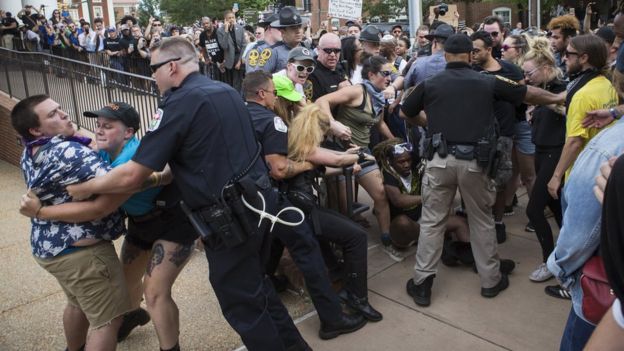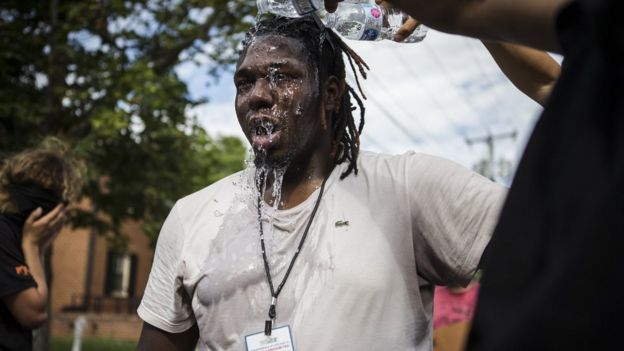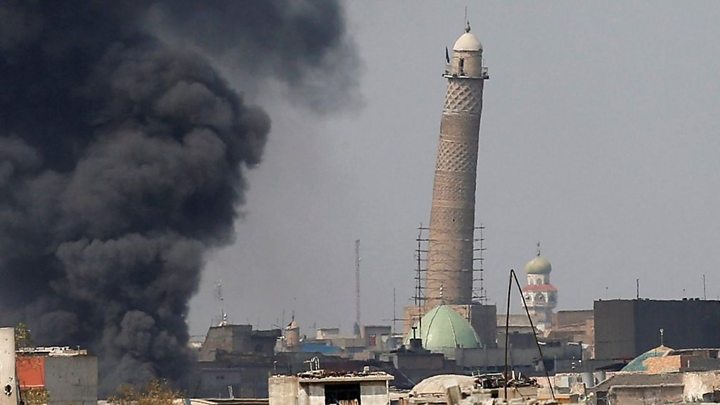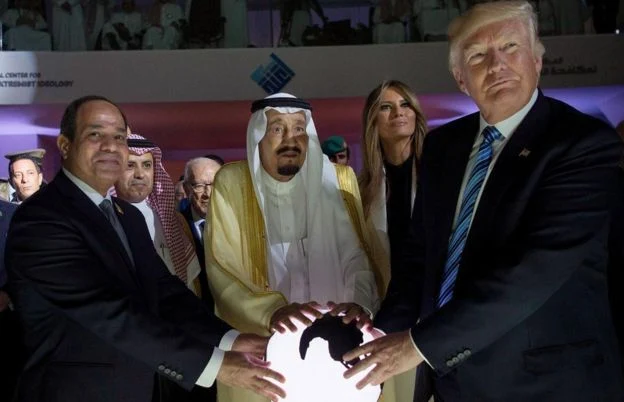Tens of thousands of people are due to rally in the Turkish city of Istanbul at the end of a 450km (280-mile) protest march against the government of President Recep Tayyip Erdogan.
Huge crowds have joined the "justice" march since it began in the capital Ankara on 15 June.
They are demonstrating against the mass dismissals and imprisonments that followed last year's failed coup.
President Erdogan has accused the marchers of supporting terrorism.
He said the Republican People's Party (CHP) - which has organised the march - had gone beyond political opposition and was "acting with terrorist organisations and the forces inciting them against our country".
CHP leader Kemal Kilicdaroglu launched the march after one of his MPs, Enis Berberoglu, was arrested for allegedly leaking documents purporting to show that the government was arming jihadists in Syria.
Mr Berberoglu denies the charge. Sunday's rally is taking place outside the jail in which he is being held.
More than 50,000 people have been arrested and 140,000 dismissed or suspended since last year's attempted military takeover.
The detentions of human rights activists and leading journalists have drawn international condemnation.
Mr Kilicdaroglu, who began the march and has walked around 20km a day, says the purges and emergency rule by Mr Erdogan constitute a "second coup".
The failed coup last July saw rogue soldiers bombing government buildings and driving tanks into civilians, killing more than 260.
The BBC's Mark Lowen in Istanbul says the march has become an unprecedented show of defiance against the President Erdogan.
There is a widespread feeling that the government has seized the chance to crush all opponents, not just alleged coup supporters, our correspondent adds.
BBC NEWS




















